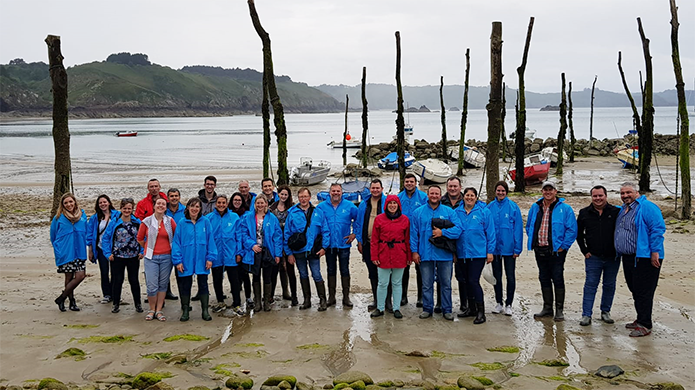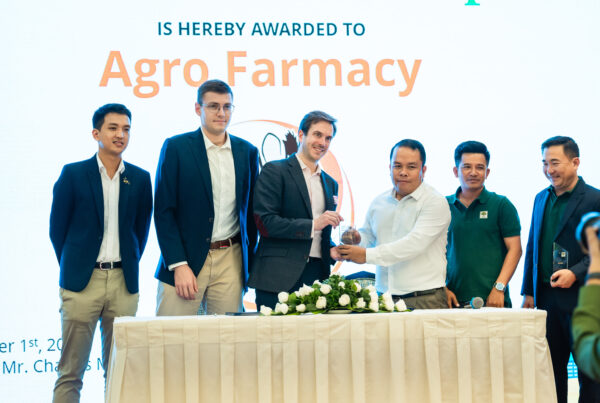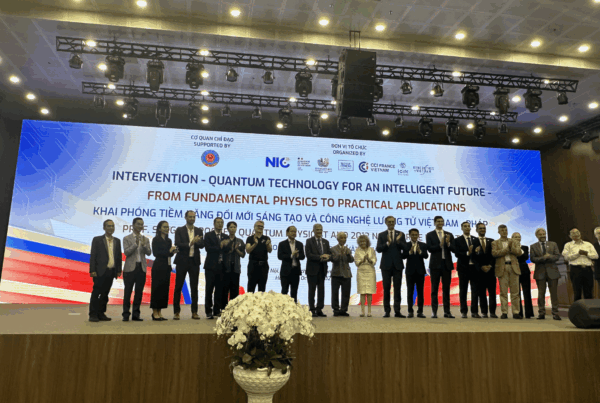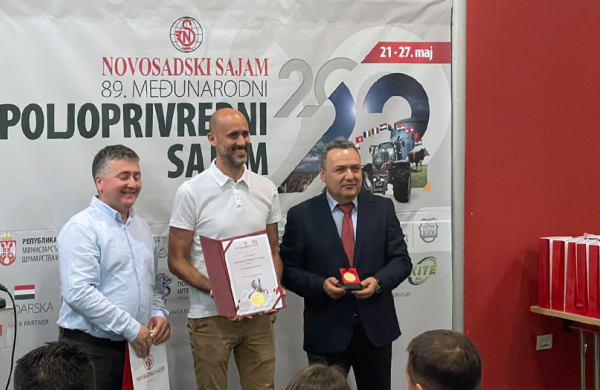After a convivial lunch based on products with algae flavours and antibiotic-free meat, the Plant Care Plenary session went on and the Animal Care programme was divided by several technical workshops by species.
PLANT CARE
Mr Sébastien Roumegous, co-founder of the Center for Agroecology Development, CDA, was the one to open the Plant Care afternoon session by sharing with the audience his particular approach to agroecology, focusing on the creation on high-quality channels: “Nowadays, continuous training along with pedagogy and global approach are vital and necessary to cope with consumers’s demands. That is applicable to everyone involved in the process: suppliers, trade actors and cooperatives”.
Later on, Mr Thierry Audier, Olmix Group’s Vicitulture Specialist, presented the more and more important and essential tool to move towards an innovative agriculture: biostimulants. In fact, Mr Audier shared the latest updates on the good results obtained by the Olmix’s foliar biostimulant range SeaMel in viticulture.

Mr Sébastien Roumegous, co-founder of the Center for Agroecology Development, CDA.

Mr Thierry Audier, Olmix Group’s Vicitulture Specialist.
Then, Mr Eric Schmidt, Deputy General Manager of the Institute for Sustainable Agriculture (IAD), delivered a lecture on the ‘indicIADes’, where he shed some light on “sustainability indicators that IAD has introduced to help farmers in their agroecological approach”. According to him, “these indicators are focused on soil quality, biodiversity, input efficiency, greenhouse gases, carbon footprint, economic efficiency, and social viability of the farm.” In a nutshell, indicIADes are proving to be really valuable tools for farmers, if we consider that ‘measuring means evaluating to evolve’.
The one to close the session was Mr Sébastien Balusson, Olmix Group’s General Director, who gave an insight into the global algae resources, the increasing demand existing these days, and the Olmix’s work on the matter: “The use of algae in agriculture is going to increase. Their properties possess multiple benefits for both animals and plants. Olmix continually invests in quality and research to provide its customers with a high-level long-term service”, he said.

Mr Eric Schmidt, Deputy General Manager of the Institute for Sustainable Agriculture (IAD).

Mr Sébastien Balusson, Olmix Group’s General Director.
ANIMAL CARE WORKSHOPS
In Animal care workshops, the hot topics of the moment such as houses atmosphere, emerging or developing diseases were discussed and Olmix Algae-based solutions related to those issues were presented.
Highlights:
Pig workshop

Dr Jean Le Guennec (Labofarm): “neonatal diarreha”. “Neonatal diarrhea is one of the causes of growth delay in piglets. Rotavirus are present in all farms and they are very resistant. Most importantly, they attack villi”.

The results of Seagut Paste, based on algae, on the natural management of early digestive troubles (76% positive) was then presented by Matthieu Le Goff (Olmix)

Solène Lagadec (Chambre d’agriculture de Bretagne): ‘Impact of ammonia in swine production’. “Ammoniac in the environment comes at 97% from agriculture industry. It is detrimental to environment, animals and human health and can generate conflicts in the neighborhood due to its smell.

Zfix, presented by Franck Bienne (Olmix) orientates fermentations in farm effluents and contributes to the reduction of the release of ammonia.
- Poultry workshop

Paul Ponchant (ITAVI): ‘Ammonia in poultry production’. “European regulation on ammonia is changing. To manage ammonia in poultry houses, the choice of the litter is a key. Basic solutions have to be banned as they favor ammonia release”.

On the contrary the use of a pelleted litter with acidifying properties as the Mbroiler recently launched by Olmix and presented by Cédric Van Den Bossche can be efficient.
- Ruminant workshop

Johann Cariou (BCEL): ‘Feed efficiency’. “Feed efficiency and milk production optimization can be managed through observation and analysis of animals’ behavior. In that field the basis have to be respected too ! For example, drinking water spots are still rarely available enough in many farms”.

The supply in self-service of licking blocs or buckets from the Z’lick range, based on algae, allows to offer nutritional solutions adapted to each specie and stage, said Franck Bienne (Olmix).

Dr Yannick Saillard (BCEL): ‘digital dermatitis”. “Digital dermatitis costs 250€ per cow on average, being a very important economic impact. The environment is the main cause leading to this disease. digital dermatitis. By controlling and decreasing the presence of water and moisture we will reduce the risk of mortality by 20%”.

The use of Mistral in dry footbath leads to a reduction of 38% of the occurrence of the dermatitis lesions, according to a study presented by Elodie Lazennec (Olmix).
- Aqua workshop

Dr Robin Carpentier (Vet’eau): “The liver is responsible for more than 500 physiological functions. When we talk about animal production, any malfunction in the liver may lead to several disorders such as steatosis”.

Digestsea, presented by Jean Peignon (Olmix), is based on algae extracts with lipid metabolism regulation properties (MSP®) is recommanded to protect liver.

Jean Peignon also presented the effects of fusariotoxins in aquaculture, highlighting the fact that the occurrence of the problem is growing on the field due to the increase of the use of vegetal raw materials in feeds. “The use of a wide spectrum binder as MTX+, is highly recommended”.

Last presentation was delivered by Marie Gallissot (Olmix) and focused on how Mfeed+, based on an algae-clay association technology can secure and enhance digestive process allowing the use of by products or fish meal substitutes while maintaining performance.





